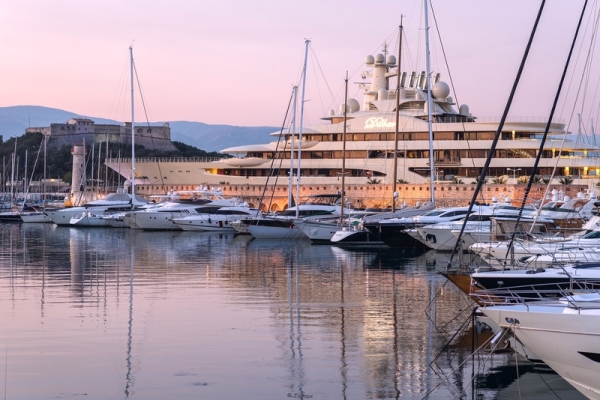EU’s five biggest billionaires’ wealth surges 76 percent
While the vast majority of the EU’s population has become steadily poorer recently, its top five richest billionaires have increased their wealth from €244bn in 2020 to €429bn in 2023, an Oxfam report revealed on Monday (15 January).
This represents a 76 percent increase in just three years — at a rate of €5.7m per hour.
"This inequality is no accident; the billionaire class is ensuring that corporations deliver more wealth to them at the expense of everyone else," said Amitabh Behar, Oxfam International’s interim executive director.
On current trends, global poverty will not be eradicated for another 229 years, but the world’s first trillionaire could emerge in just a decade, according to the Oxfam report on inequality.
"The majority of people are actually shouldering the economic consequences of all these crises, while we see the richest in the world, in Europe, making more and more money and accumulating more and more wealth," EU’s tax expert Chiara Putaturo told EUobserver.
Today, the richest one percent own 47 percent of the wealth in Europe, which includes Russia, Norway and the UK, as defined by the UN.
And while their wealth has grown, the vast majority of EU citizens (around 443 million people) have seen theirs fall in real terms (taking inflation into account) from €57bn to €54bn in just three years.
"This could produce anger, but it might also be reflected in the European elections, perhaps in the choices that voters make," Putaturo stressed.
The report shows how inequality continues to grow, particularly in the concentration of wealth, but also how this accumulation of wealth is linked to growing corporate and monopoly power, widening social and economic inequalities.
In seven of the world’s 10 largest listed companies, billionaires are either the main shareholder or the CEO.
A position that also gives them the power to directly influence public policy and laws, the report says, citing a study that found that of 3,000 proposals from European countries over 40 years, those supported by the rich were more likely to be implemented than those supported by the poor.
In addition, only four percent of the world’s 1,600 largest companies fully meet the World Benchmarking Alliance’s social indicator on responsible tax by having a public global tax strategy and being transparent about the corporate taxes they pay in all countries.
Oxfam’s director called on governments to step up, saying very few companies are acting responsibly.
"There are actions that lawmakers can learn from, from US anti-monopoly government enforcers suing Amazon in a landmark case, to the European Commission wanting Google to break up its online advertising business, to Africa’s historic fight to reshape international tax rules," said Behar.
Reducing the gap between the super-rich and the rest of society can also be done by taxing the richest, the NGO suggests.
"A European wealth tax is vital to stop us from falling into a new age of billionaire supremacy," Oxfam’s tax expert said.
Oxfam calculates that a progressive wealth tax on the EU’s richest could raise €286.5bn a year. That is 40 percent of the EU’s recovery and resilience fund.
Just to give an overview of the profits made by companies headquartered in the EU, 22 of the world’s biggest companies made a net €172bn in the year to June 2023, 66 percent more than their average profits between 2018 and 2021.
"By fairly taxing Europe’s richest, the EU holds the key to start narrowing the chasm between them and the rest of us," Putaturo argued.

